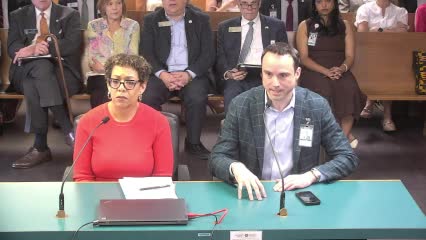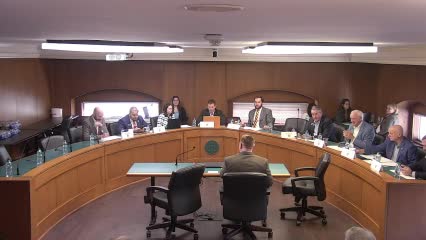Article not found
This article is no longer available. But don't worry—we've gathered other articles that discuss the same topic.

Senate committee approves five-year bus rapid transit pilot with camera enforcement in Atlanta

Senate committee clears omnibus road-naming bill with minor amendment

Senate committee advances bill to codify rideshare drivers as independent contractors, bar vicarious claims

